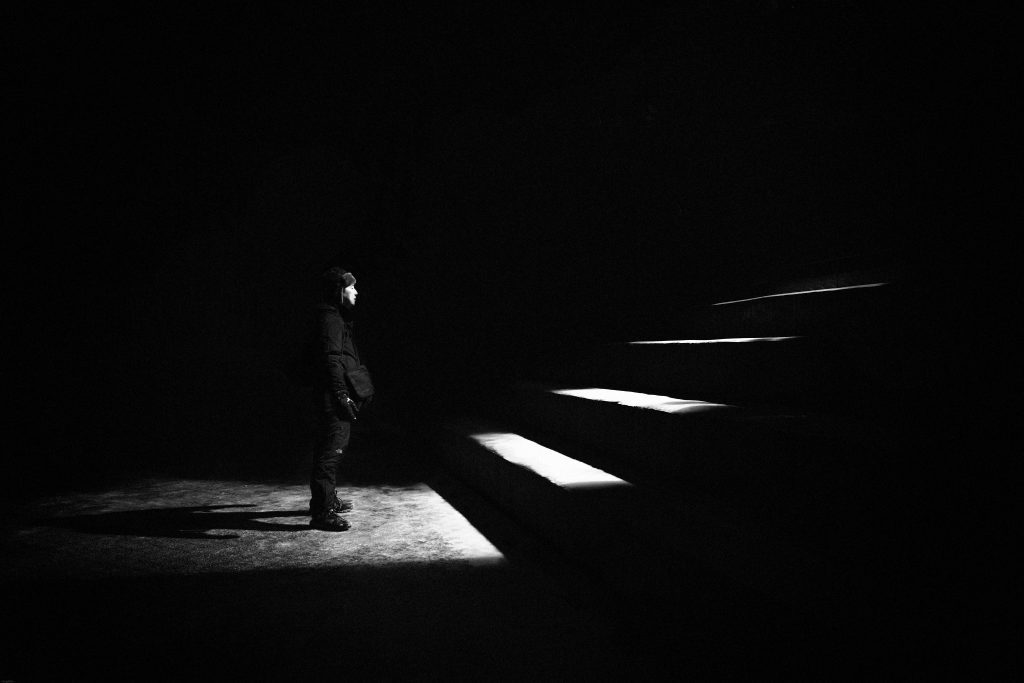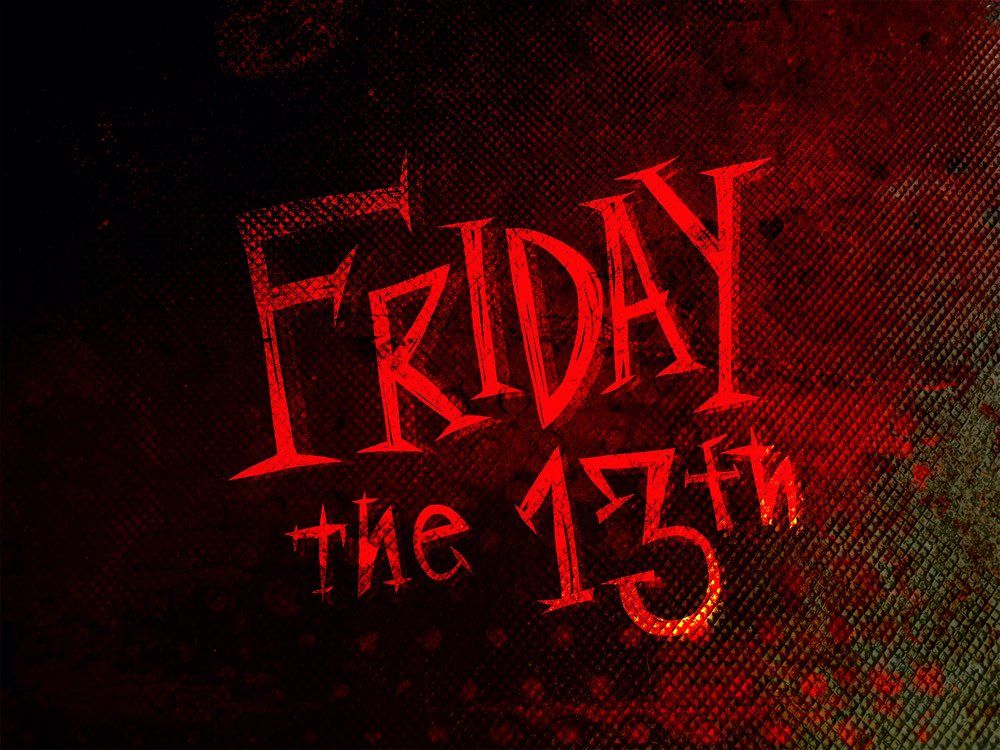Friday the 13th is an iconic day, especially for horror fans. So let’s dig into the history of Friday the 13th and rediscover where this all began, shall we?
The History of Friday the 13th
Paraskevidekatriaphobia—do you have it? Well, if you’re irrationally afraid of the natural occurrence of the thirteenth of any given month falling on a Friday, then yes—yes, you do. If so, then you might have a hard time this year, since we’ve got two of them coming up. Friday the 13th, supposedly the unluckiest day of the year, occurs at least once, but never more than three times in a calendar year. March and November are the unlucky winners this year, so if you’re scared, arm yourself with some of these facts and prepare to understand your superstition better than ever before.
The Origin of the Superstition
Within western culture, there are many superstitions that circulate on a regular basis—Friday the 13th is but one example of a superstition that has become so well-known that it has been worked into the very fabric of horror culture itself. From walking under ladders to breaking mirrors, stepping on cracks, or having a black cat cross your path, it seems as if there is always something to be superstitious of—people even subject themselves to their own superstitions, such as wearing their favorite sports team’s jersey to increase the odds of their team winning. Regardless, it seems that people still choose to purposefully avoid black cats, sidewalk cracks, and treat mirrors with respect, especially on Friday the 13th—as if these superstitions, when combined escalate into something even worse. Dr. Phil Stevens, an associate anthropology professor at the University of Buffalo, suggests that it’s important to respect the convictions that people display about their superstitions, noting that, “sometimes these are frivolous things, but sometimes they are deeply rooted cultural fears … you can insult somebody by making fun of it or you can be ignorant yourself. Some people have deep cultural taboos that you cannot change by denying them.” The question that has long plagued people, however, is why do we subject ourselves to these blatant paranoias—how did these things evolve to being harbingers of bad luck, and why do we continue to pay tribute to these traditions year after year?
How Thirteen Became an Unlucky Number
According to Dr. Simon Bronner, a notable professor of American studies and folklore at Pennsylvania State University, Friday the 13th is just a “convenient milestone for people who are looking to trace bad luck to a certain cause,” but he always state that there really is nothing special about the date itself—in fact, in countries like Italy, the number thirteen is actually considered a lucky number! To be perfectly honest, it’s unclear how Friday the 13th became such a totem for bad luck, but the number thirteen itself has been speculated, to have been considered unlucky since the Middle Ages.
First mentioned in the English language, this day was first introduced as an unlucky happenstance in the biography of Gioachino Rossini, an Italian composer who died on—you guessed it—Friday, November 13th, 1868. It was further extended into superstition by Thomas W. Lawson, an American businessman who published a book titled Friday the Thirteenth, in which a crooked stockbroker takes advantage of this superstition to create wide-spread panic on Wall Street.
In Manhattan and Brooklyn, New York an analysis conducted by CityRealty presented findings that fewer than five percent of mid-rise and high-rise residential condo buildings have a thirteenth floor. Not to say that the thirteenth floor doesn’t exist—it’s just not labeled under the number thirteen.
Norse Mythological Origins
While not the most notable mythological origin, according to Donald Dossey, in Holiday Folklore, Phobias and Fun, a Norse myth told of a dinner party that was set for twelve gods, where the thirteenth guest—the god of trickery, Loki—crashed the party and shot Baldr, the god of joy and happiness. Thanks for all the bad luck, Loki.
The Last Supper
Folklore historians all agree that isolating the exact time when Friday the 13th came to be known as a taboo and superstition, many of them agree that it may have originated from the Last Supper. As popular mythology agrees, Jesus was crucified on a Friday—some speculate Friday the 13th, immediately after the Last Supper, attended by Jesus and his twelve apostles to a total of thirteen people at the table. The longstanding superstition within the Christian religion is that having thirteen guests at a table is a bad omen that, “courts death.” Dr. Stevens told TIME that “when those two events come together, you are reenacting at least a portion of that terrible event … you are reestablishing two things that were connected to that terrible event.” So what started with what happened in Christian mythology, this somehow led to the modern phenomenon that has Americans avoiding things that are labeled with thirteen. Room number thirteen in a hotel, the thirteenth floor, the thirteenth row in an airplane—all of these superstitions are attached to the number of people who sat at the table the night before the crucifixion. Bronner believes that there is, “a grain of truth,” to the theory of the Last Supper, but that there is, “not much of a connection to the modern belief … it may be a case of religious folklore that rose to explain a belief.” He further tells us how psychologists treat the fear of Friday the 13th as a real phenomenon, but he believes that it was a constructed belief that is convenient for people to place blame upon.
Oddly enough, the crucifixion wasn’t the only biblical tragedy that befell mankind on Friday the 13th—in fact, it’s said that the story of Adam and Eve being expelled from the Garden of Eden, the day Cain killed Abel, the Great Flood during the time of Noah, and the confusion of languages at the Tower of Babel also took place on this fated day.
The Occult, Witches and their Covens
A long-standing myth that surrounds Friday the 13th puts a firm association with witches—likely another confirmation from the origination of this superstition from Christianity. For those that are not in-the-know, covens are said to be a formal gathering of witches who perform rituals together—a sort of religious or spiritual gathering, where they perform spells, rituals, or seasonal offerings to honor whoever they may worship. The Christian leaning of this is due to the witch trials where women were forced through torture to admit to things that weren’t necessarily true, stating that they were convening with the devil and attacking other members of the community to do his bidding.
What holds in the tradition of witchcraft is that a traditional coven recognizes twelve followers and a leader, which brings the total to—you guessed it—thirteen. In medieval covens, it is stated in The God of the Witches from 1931 that, “the number in a coven never varied, there were always thirteen, i.e., twelve members and the god.” In any case, the leader or god was always believed to be the Devil himself—or a man who represented the devil. This is of course, not backed by any substantial evidence from within the community of witchcraft practitioners, but instead considered more of an accusation from more mainstream religions such as Christianity.
The Thirteen Club
A New Yorker by the name Captain William Fowler made an attempt to remove the hardened stigma of the number thirteen in the late 19th century. In particular, his goal was to remove the stigma surrounding thirteen guests at a table—he attempted this vigorously by establishing a private society by the name of The Thirteen Club. As a general practice, this group dined on the thirteenth day of each month in room 13 of the Knickerbocker Cottage, which Fowler owned from 1863 to 1883. Before sitting down to dinner with twelve other guests, each participant of the club would pass under a ladder and a banner that read, “those of us who are about to die salute you,” in Latin. Notable members of this club were four former presidents of the United States of America, Chester A. Arthur, Grover Cleveland, Benjamin Harrison, and Theodore Roosevelt.
HMS Friday—The Urban Legend
An urban legend centering around the Royal Navy from the 19th century considers this the ultimate Friday the 13th legend—the story goes, that it was an attempt by the Royal Navy to dismiss the superstition against sailing on a Friday. While the details vary from telling to telling, they christened the ship HMS Friday; her keel was laid on a Friday, she was launched on a Friday, she set sail on her maiden voyage on Friday the 13th, and all of this under the command of a man by the name of Captain James Friday. After her launch, she was never seen or heard from again. While it’s a great story, the truth is there has never been a Royal Navy ship by the name of HMS Friday.

A Timeline of Friday the 13thDisasters
- October 13, 1307—officers of King Philip IV of France imprisoned and executed hundreds of the Knights Templar.
- September 13, 1940—German forces bombed Buckingham Palace during WWII.
- November 13, 1970—A cyclone in Bangladesh killed 300,000 people.
- October 13, 1972—A Chilean Airforce plane disappeared in the Andes mountains, sixteen survivors turned up two months later, having been forced to cannibalize the dead in order to survive.
- February/August 13, 1976—(no we’re really not sure which month) Daz Baxter a New Yorker with a raging case of paraskevidekatriaphobia decided to ride out his least favorite day of the year by staying in bed; his bad luck was illustrated when the floor of his apartment block collapsed that day and he fell to his death.
- October 13, 1989—Black Friday—a $6.75 billion buyout for the parent company of United Airlines caused the crash of global markets.
- September 13, 1996—Tupac Shakur succumbed to his gunshot wounds six days after multiple gunshot wounds during a drive-by shooting.
- March 13, 2009—the SAW ride at Thorpe Park in Chertsey was scheduled to open but was shut down due to computer failure.
- January 13, 2012—the Costa Concordia cruise ship crashed off of the coast of Italy, killing 30 people.
- November 13, 2015—ISIS organized seven simultaneous terror attacks in Paris, killing 130 people and leaving hundreds wounded.
- April 13, 2029—an asteroid is rumored to come within 22,000 miles of Earth—what will happen?
Strange Friday the 13th Facts
There are of course strange facts surrounding any supernatural phenomenon or superstition, but Friday the 13th even more so—perhaps because more people pay attention to things that they’re afraid of, or perhaps because Friday the 13th is such a notorious date for strange occurrences. Here are a few—maybe more than a few—strange facts about the superstitions regarding Fridays.
- In Somerset, if you turn a bed over on a Friday, you’re risking turning a ship over at sea.
- In Cumbria, if a baby is born on a Friday, they immediately lay them upon the family Bible.
- In some areas, if a doctor is called upon for the first time on a Friday, it is an omen of certain death.
- According to English Folklore from the 1800s, a marriage conducted on a Friday is destined for an unhappy future—on the plus side, this superstition generally leads weddings conducted on Friday the 13th is substantially cheaper for couples.
- If you cut your hair or nails on a Friday, you’re doomed for misfortune.
- If thirteen people unwittingly dine together, the first to rise will certainly be condemned to misfortune—another fun fact attached to this one is that President Franklin D. Roosevelt was known to uphold this superstition almost religiously.
- President Franklin D. Roosevelt also refused to travel on Friday the 13th.
- Winston Churchill refused to sit in any row that was numbered thirteen—cited in particular are rows on planes or theatres.
- In North Carolina, the Stress Management Center and Phobia Institute conducted a study that found a loss of $700-800 million every single Friday the 13th because people simply refuse to conduct their lives as they normally would.
- If you’re brave enough to fly on what’s considered the unluckiest day of the year, you’ll find that prices are actually a little bit more reasonable.
Unlucky in Reality, but a Pop-Culture Boon
Just like anything in the horror genre—if it’s unlucky, scary, gruesome, or lies somewhere within the realm of supernatural, it’s bound to have a selling idea. The movie franchise Friday the 13th firmly placed the date into the greater arena of cultural recognition. Jason Voorhees, the star and villain of the franchise has inspired so many sequels, spinoffs and more that if you were to google Friday the 13th, you’ll get more results about the franchise than the lore that launched the idea for it in the first place.
Final Thoughts…
It seems that Friday the 13th may only be a western superstition though—as it’s cited that in Italy, the number thirteen is actually quite lucky, instead they rather fear Friday the 17th. Personal curiosity causes one to wonder if the movie franchise of Friday the 13th should be renamed in countries like Italy, to make it more culturally relevant. In Greece, it’s not Friday the 13th, but Tuesday the 13th that causes people to be unsettled, whereas in China the number four is considered to be unlucky as it has a similar pronunciation to the word for “death.”
So, in the long run—is Friday the 13th really a day of bad luck? According to Dr. Caroline Watt at the University of Edinburgh, it’s actually the belief in the superstition that causes all of the kerfuffle to happen on this date. She appeals to baser instincts when she suggests that, “if people believe in the superstition of Friday the 13th then they believe they are in greater danger on that day. As a result, they may be more anxious and distracted and this could lead to accidents. It becomes a self-fulfilling prophecy … It is like telling someone they are cursed. If they believe they are then they will worry, their blood pressure will go up and they put themselves at risk.” With that in mind—are you still afraid of a naturally occurring phenomenon?

Georgia-based author and artist, Mary has been a horror aficionado since the mid-2000s. Originally a hobby artist and writer, she found her niche in the horror industry in late 2019 and hasn’t looked back since. Mary’s evolution into a horror expert allowed her to express herself truly for the first time in her life. Now, she prides herself on indulging in the stuff of nightmares.
Mary also moonlights as a content creator across multiple social media platforms—breaking down horror tropes on YouTube, as well as playing horror games and broadcasting live digital art sessions on Twitch.



